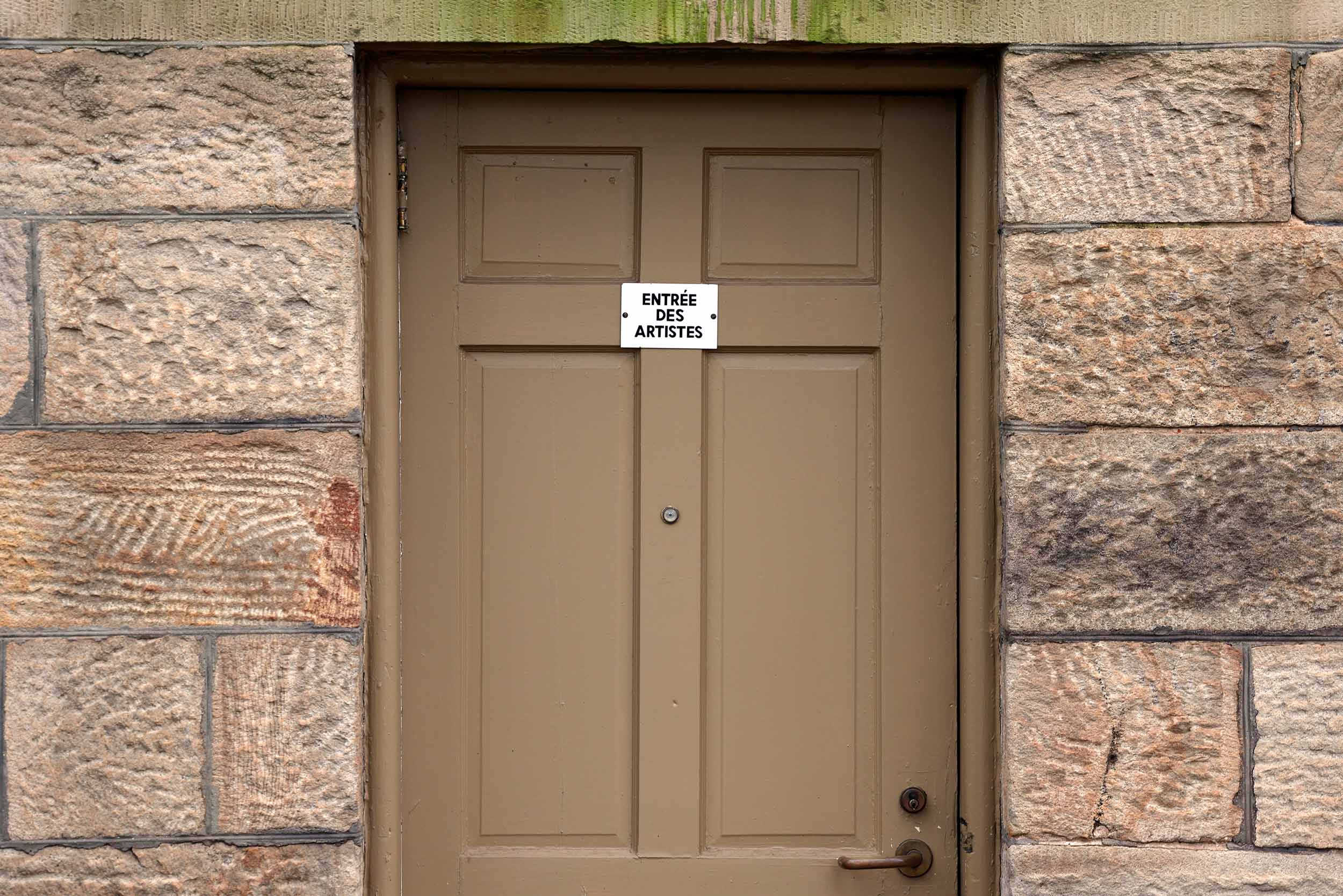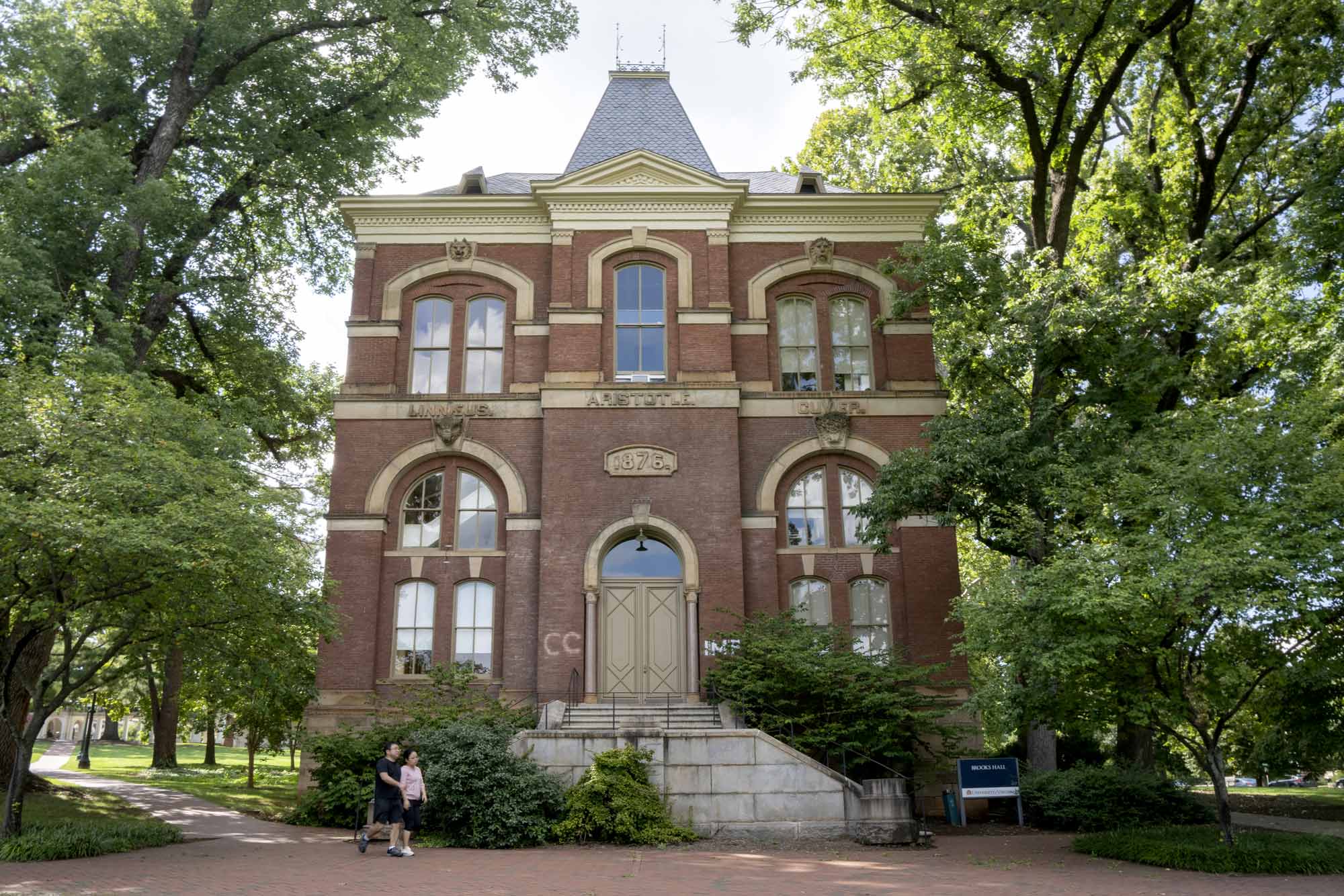French professor Ari Blatt said the sign, if translated literally, would read, “Entrance for artists.” But, Blatt said, the actual translation is “stage door.”
“That expression usually refers to a dedicated entrance for actors at a theater,” he said.
All fine and good, but Brooks Hall, built in 1876, has never been a theater. Behind the locked door is a graduate-student lounge and some study spaces.
The brooding building – described by some experts as French Second Empire and by others as Victorian Gothic – seems out of place next to UVA’s Jeffersonian architecture. It has more in common with an Alfred Hitchcock film setting than the Academical Village. The mammoth structure, easily seen from University Avenue, was originally a natural history museum and once housed a replica of, well, a mammoth.
Later, the building was converted to offices and classrooms. Today, it houses UVA’s Department of Anthropology.
But to find out why a “stage door” sign adorns a hunter-green exterior basement door, we contacted professors and historians across Grounds who posited an array of theories before funneling us to Professor Emeritus Jeffrey Hantman, the foremost authority on Brooks Hall.
“I have researched and written about close to every mysterious part of the 19th century Brooks Hall, the names and animal heads on the walls, the Second Empire architecture so at odds with the Lawn, and more,” Hantman wrote. “But I have never given this late 20th century ad hoc sign much thought. Until your question.”
The sign, Hantman conceded, perhaps wryly, “turns out to be a bigger mystery than the architectural elements of Brooks and its exhibits.”
In addition to asking for help from Blatt and Hantman, the So Hoos Asking crew also tapped the memories of Garth Anderson, facilities historian; Brian Hogg, senior historic preservation planner; Lawrence Goedde, professor of art history; and Richard Crozier, professor emeritus of art.
Some offered a couple possibilities. In the 1990s, the Studio Art program was based in Brooks before moving to a new home in the early 2000s. And from time to time, musicians have played in Brooks Hall spaces. So it’s possible an artist or musician placed the sign, although Hantman is skeptical.
So, after literal weeks of research on the “Entrée des Artistes” sign, here’s what we’ve come up with: It’s probably a prank fastened to the door by someone using the literal translation of the phrase, not the common “stage door” meaning.
Crozier, the art professor, consulted with a colleague and offered this:
“Neither of us remembers the sign, although there is an ‘Entrée des Artistes’ sign on our downstairs bathroom door, about which there is no mystery,” he wrote. “We got it some years ago at Pour la Maison,” a Charlottesville store specializing in French décor.
Hantman says the sign has probably been in place, unquestioned, at least two decades.
“No one in Brooks Hall today can recall a reason for why the sign went up and is so securely attached,” Hantman said. “It’s been ignored for the most part.”
So, if you’re an alum who knows the specific story behind this prank or whatever it is, let us know so we can, pardon the door pun, have some closure.
Have a burning question for our crack team of UVA historians, experts, students and staff to answer? Send your queries to HoosAsking@virginia.edu.






